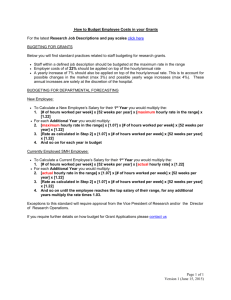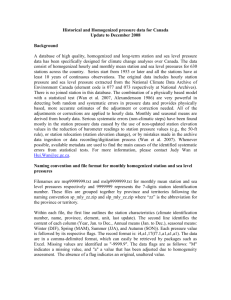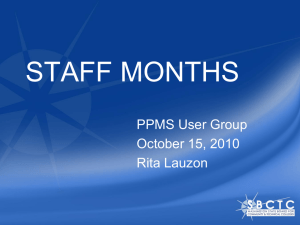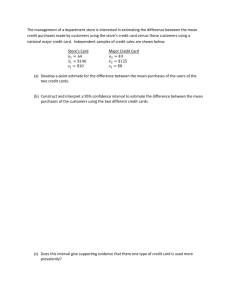Antibiotic Policy - BJ Medical College
advertisement
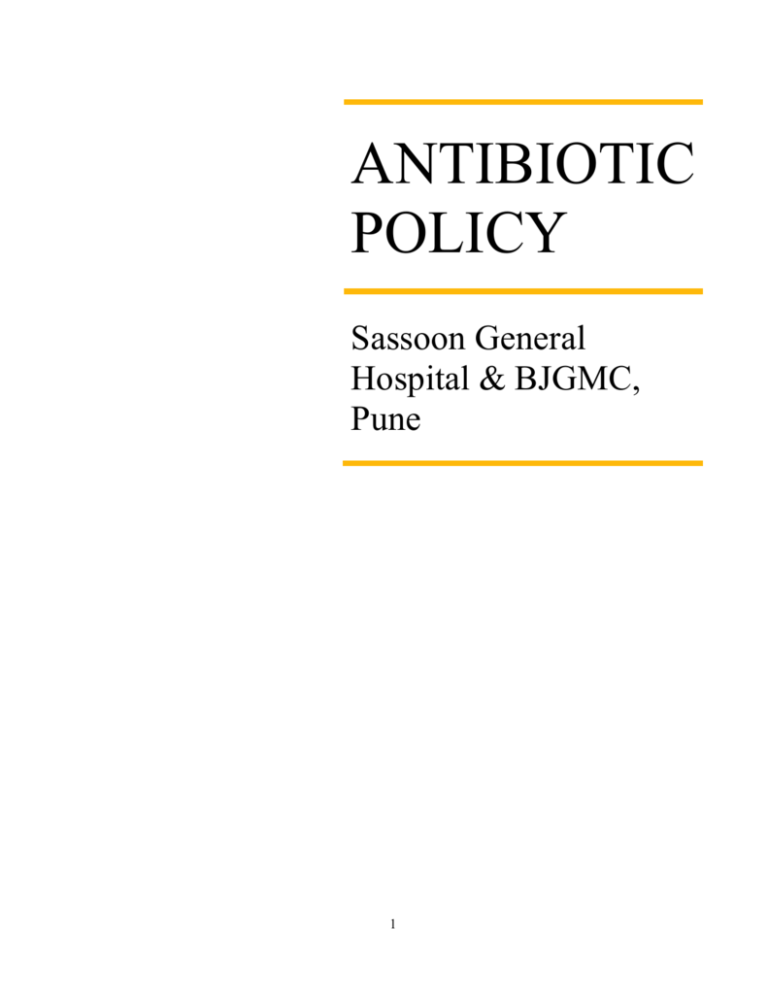
ANTIBIOTIC POLICY Sassoon General Hospital & BJGMC, Pune 1 ANTIBIOTIC POLICY Sassoon Hospital & BJGMC Pune 2014-15 2 FOREWORD It gives me immense pleasure to present this handbook on Antimicrobial Policy for Sassoon Hospital, Pune. I sincerely appreciate the efforts of team who have worked to make this policy a reality. It is less than a century since antibiotic therapy became available to humanity. However, widespread and indiscriminate use of antibiotics has resulted in microorganisms developing resistance to them, so much so, that now the antibiotic resistance has reached alarming proportion. This antibiotic policy will ensure rational use of antibiotics in Sassoon Hospital and help us contribute to minimizing the menace of antibiotic resistance. Dr A.S. Chandanwale Dean B.J. Govt. Medical College & Sassoon Hospital, Pune 3 Index Foreword 3 Introduction 5 General Guidelines 6 MEDICINE 7-9 SURGERY 10-15 PEDIATRICS 16-17 ENT 18 NEONATAL INFECTIONS 19-20 OBST. & GYNAEC. 21-22 ORTHOPEDICS 23-24 DERMATOLOGY 25-26 CVTS 27 OPHTHALMOLOGY 28-30 Contributors 31 Steps of Hand-washing 32 4 INTRODUCTION The emergence and spread of antibiotic resistance is becoming a global public health concern. The widespread use of antibiotics both inside and outside of medicine has contributed largely to this phenomenon. The large volume of antibiotics prescribed in health care settings is a major cause of concern and bacteria once exposed to antibiotics have the capacity to adapt and develop resistance by various mechanisms. All newly introduced antimicrobial agents have only a limited ‘virginity’ before the specter of resistance emerges. The current situation is that there are very few newer antibiotics in the pipeline as it is no longer cost effective for the pharmaceutical industry to develop newer antimicrobials. Antimicrobial resistance in hospitals hampers the control of infectious diseases and threatens a return to the pre-antibiotic era. It also increases the costs of health care and jeopardizes health-care gains to society Thus, this antibiotic policy was developed by the staff of B.J. Government Medical College & Sassoon general Hospitals, Pune as an effort to rationalize the use of antibiotics in the hospital keeping in mind the current sensitivity patterns of hospital bacteria and availability in our drug store. It is planned that the policy will be renewed regularly based on the feedback of the clinicians, the availability of drugs in the hospital and the drug sensitivity pattern of the hospital pathogens. I would like to reiterate that these are guidelines only and the interpretation and application of these guidelines is the responsibility of the clinician. A review of the current guidelines will be planned based on the experiences of the clinicians and the problems faced by them. Formulation & implementation of an antibiotic policy is a first step in implementing the rationale use of antibiotics. It is also a step towards controlling the spread of antimicrobial resistance in our hospital. However it cannot be a short cut to appropriate infection control practices especially hand washing. An antibiotic policy can only succeed if there is willingness and ownership of every single doctor in the hospital. Please ensure that samples for culture and sensitivity are sent before onset of therapy, so that data regarding antimicrobial spectrum of pathogens from various sites stays updated and is available to you so you can plan therapy better 5 GENERAL GUIDELINES 1. Clinical samples for microbiologic culture and sensitivity must ALWAYS be sent, before starting empiric therapy. 2. Empiric treatment can be started as per policy guidelines and clinical judgment 3. Step down or step up of treatment can be done based on the antibiotic sensitivity report. In case of no clinical response, consult microbiologist and pharmacologist. 4. Various factors associated with drug metabolism must be taken into account while prescribing treatment Hypersensitivity(Patient MUST be questioned about drug allergies in past) Renal function Drug interactions 5. Irrational drug combinations must be avoided. 6. Colistin, Carbapenems and linezolid are reserve drugs only and should be prescribed only after culture sensitivity report demonstrating sensitivity exclusively to these drugs. 7. Therapy monitoring: Need of antibiotic must be reviewed on daily basis. Most common infections usually need antibiotics for not more than 7 days. IV antibiotics should be switched to oral within 24-48 hours, based on clinical improvement and microbiology antibiotic sensitivity pattern. 8. Antibiotics should not be used as a substitute for appropriate infection control procedures. 6 ANTIBIOTIC POLICY MEDICINE DEPARTMENT Clinical condition Community acquired Pneumonia Mild(Not hospitalized) Empirical therapy Remarks Oral Doxycycline100 mg 12 hourly X 7days /Oral Azithromycin 500 mg OD 3 days Use oral drugs Moderate(Hospitalised, Not in ICU) Inj Levofloxacin 750 mg IV 6 hourly X 7-10days/ Oral Azithromycin 500 mg OD 3 days Levofloxacin 750 mg IV 6 hourly X 7-10 days OR Moxifloxacin 400 mg IV 24 hourly Amikacin15mg/kg 6 hourly +IIIrd generation cephalosporins Cefotaxime 1–2 g IV 8 hourly , Ceftriaxone 2 g IV qd) Vancomycin 15 mg/kg, up to 1 g IV, 12 hourly + Imipenem/Meropenem 500 mg IV 6 hourly or 1 g IV 8 hourly Use injectables. Switch to oral as early as possible Severe (ICU) Hospital Acquired Pneumonia VAP Clinical condition Acute meningitis Chronic meningitis -Use injectables. Switch to oral as early as possible -Escalate/descalte after culture sensitivity report -Stop antibiotics after 5 days of clinical response -Escalate/deescalate after culture sensitivity report -Stop antibiotics after 5 days of clinical response Empirical therapy Vancomycin 15 mg/kg IV 8hourly+ Ceftriaxone 2 gIV 12hourly/Cefotaxime 2 g IV 6hourlyfor 1014 days+ Dexamethasone 0.15mg/kg X 4 days Culture is mandatory prior to starting therapy Clinical condition Gastroenteritis Empirical therapy Mild diarrhoea < 3 unformed stools with min symptoms Ciprofloxacin 500 mg/ Norfloxacin 400mg orally 12 hourly) + Metronidazole 250 mg 8 hourly for 3 days Ciprofloxacin 500 mg/ Norfloxacin 400mg orally 12 hourly) for 3 -5 days + Metronidazole 250 mg 8 hourly for 5 days Ciprofloxacin500 mg/ / Norfloxacin 400mg orally 12 hourly for 3 -5 days + Metronidazole 250 mg 8 hourly for 5 days Doxycycline 300 mg orally x 1 day Oral Metronidazole 400 mg orally tds X 107 Moderate diarrhoea > 4 < 6 Severe diarrhoea > 6 with > temp. tenesmus Cholera like watery diarrhoea Clostridium difficile associated Remarks diarrhoea 14 days OR Oral Vancomycin (125mg 6 hourly ) X 1014 days Clinical condition Oesophagitis Empirical therapy Fluconazole 200 -400 mg daily/ Injection Amphotericin B Duodenal/gastric ulcer Omeprazole(20 mg 12 hourly) + Clarithromycin(250 or 500 mg 12 hourly)+Metronidazole(500 mg 12 hourly) for 14 days Clinical condition Blood stream infections 1) CRBSI 2) Native valve endocarditis 3) Prosthetic valve endocarditis Clinical condition Urinary tract infection Community acquired Catheter associated Pyelonephritis Clinical condition Fever of unknown origin(PUO) Empirical therapy Vancomycin(15mg/kg IV 12 hourly)+ Third generation cephalosporins (Ceftazidime 2 gm IV 8 hourly,Cefoperazone) for 4-6 weeks Vancomycin(15mg/kg IV 12 hourly) + Gentamicin( 1mg /kg IM or IV 8 hourly) for 4-6 week Vancomycin (15mg/kg IV 12 hourly)+ Gentamicin( 1mg /kg IM or IV 8 hourly) for 4-6 weeks Empirical therapy Remarks Use fluconazole only if candidial oesophagitis is suspected Remarks Cardiothoracic surgery consultation Remarks Cotimoxazole DS 12 hourly for 3 days /Nitrofurantoin 100 mg orally 12 hourly for 5 days Gentamicin( 1mg /kg IM or IV 8 hourly) + Imipenem(500 mg IV 6 hourly) x 7-14 days Uncomplicated: Oral Ciprofloxacin 500 mg BD Complicated: Piperacillin with Tazobactam 3.375 IV 6 hourly/ Imipenem 500 mg IV 6 hourly or 1 g IV 8 hourly Empirical therapy Cefotaxime (2g IV every 4-6 hourly) 8 Remarks Clinical condition Diabetic foot Mild (No systemic symptoms, Localised cellulitis Diabetic foot –moderate to severe (Limb threatening-severe cellulits/gangrene/SIRS) Empirical therapy 1. Cloxacillin 500 - 1000 mild (localized mg orally6 hourly × 7-10 days 2.Cefazolin 1 gm i.v. 8 hourly symptoms) /Cephalexin 500 mg orally6 hourly × 7-10 day + Metronidazole IV500 mg 8 hourly Cefazolin 1 gm i.v. 8 hourly+ Gentamicin 5mg/kg i.v once daily OR Ciprofloxacin 400 mg IV 12 hourly+ Metronidazole IV500 mg 8 hourly 9 Remarks Surgery consultation if intervention needed SURGERY DEPARTMENT Clinical condition Ulcer without inflammation Ulcer with<2 cm of sup inflamation Ulcer with > 2 cm of inflammation GIT Cholecystitis Cholangitis Biliary sepsis Oesophagitis Duodenal/Gastric ulcer Diverticulitis Perirectal abscess Peritonitis UTI Catheter associated Perinephric abscess Empirical therapy No antibacterial therapy Oral Cotrimoxazole DS 12 hourly /Tetracycline 500 mg 12 hourly Oral Cotrimoxazole DS 12 hourly Gentamicin Gentamicin 5mg/kg i.v once daily / Piperacillin with Tazobactam 3.375 IV 6 hourly +Metronidazole IV500 mg 8 hourly Ciprofloxacin 400 mg IV 12 hourly / Gentamicin 5mg/kg i.v once daily + Metronidazole IV 500 mg 8 hourly If severe, Piperacillin with Tazobactam 3.375 IV 6 hourly /Imipenem 500 mg IV 6 hourly /Doripenem 500 mg 8 hourly /Meropenem 1 g IV 24 hourly + Metronidazole IV500 mg 8 hourly Same as above Same as above Fluconazole 200 -400 mg daily or Amphotercin B 0.5 mg/kg daily) Omeprazole(20 mg 12 hourly) +Clarithromycin (250 or 500 mg 12 hourly)+Metronidazole(500 mg 12 hourly) for 14 days OPD: MILD /DRAINED PERIRECTAL ABCESS: Cotimoxazole bid/Levo 750 mg 24hourly+ Metro 500 mg 6hourly: All orally FOR 7-10 DAYS IPD:MILD –MODERATE: Piperacillin-Tazobactam 3.375.g IV 6hourly/4.5 g IV 8hourly/TicarcillinClavulinic acid 3.1 g IV 6 hourly/Ertapenem 1 g IV 24 hourly/Moxi 400 mg IV 24 hourly SEVERE LIFE THREATENING: Imipenem 500 mg IV 6 hourly/Meropenem 1 g IV 8 hourly/Doripenem 500 mg 8 hourly Mild: Nitrofurantoin 100 mg 12 hourly/Cotrimoxazole DS 12 hourly Severe: Amikacin 15mg/kg 6 hourly /Gentamicin 5mg/kg i.v once daily / Ciprofloxacin 400 mg IV 12 hourly / IIIrd generation cephalosporin/ PiperacillinTazobactam 3.375 IV 6 hourly Vancomycin 15mg/kg IV 12 hourly + IIIrd generation cephalosporin/ Piperacillin with Tazobactam 3.375 IV 6 hourly Start with Vancomycin 15mg/kg IV 12 hourly. 10 Remarks Descalate to Cloxacillin 250 mg oral 6 hourly Prostatitis Cotrimoxazole DS 12 hourly / Ciprofloxacin IV: 400 mg IV every 12 hours Oral: 500 mg oral 12 hourly / Ofloxacin 300 mg orally 12 hourly Clinical condition Skin and soft tissue infections Cellulitis Empirical therapy Oral regimens: Cotimoxazole 1-2 DS tablets orally 12 hourly + Amoxycillin 500 mg orally 8 hourly Doxycycline 100 mg orally 12 hourly Parenteral regimens Clindamycin 600 mg IV 8 hourly If spreading, Vancomycin 15mg/kg IV 12 hourly. Cutaneous abscess Diabetic foot with extensive inflammation and systemic toxicity Oral regimens: Cotimoxazole 1-2 DS tablets orally 12 hourly + Cloxacillin 500 mg orally 6 hourly Doxycycline 100 mg orally 12 hourly Parenteral regimens Clindamycin 600 mg IV 8 hourly If spreading, Vancomycin 15mg/kg IV 12 hourly. Vancomycin 15mg/kg IV 12 hourly. + Piperacillin with Tazobactam 3.375 IV 6 hourly + Metronidazole IV500 mg 8 hourly Descalate 11 Remarks Clinical condition SSI For clean procedures(Orthopaedic joint replacements, open reduction of closed fractures, Vascular procedures, craniotomy, breast & hernia surgery) Empirical therapy For clean contaminated procedures(GI/GU procedures, oropharyngesl & OBGY ) Piperacillin with Tazobactam 3.375 IV 6 hourly /Gentamicin 5mg/kg i.v once daily +Metronidazole IV500 mg 8 hourly In deep fascia involvement Clindamycin 600 mg IV 8 hourly +Metronidazole IV500 mg 8 hourly Clindamycin 600 mg IV 8 hourly +Metronidazole IV500 mg 8 hourly Necrotising fascitis Cloxacillin 1-2g IV 4 hourly PCN allergy: Clindamycin 600 mg IV 8 hourly 12 Clinical condition CNS Brain abscess Primary Empirical therapy Postsurgical Vancomycin 15mg/kg IV 12 hourly.+Meropenem 1 g IV 8 hourly +Metronidazole IV 500 mg 8 hourly/ Remarks Meropenem 1 g IV 8 hourly +Metronidazole IV500 mg 8 hourly Preop prophylaxis (Recommended) Urologic surgery Transrectal prostate biopsy Transurethral surgery(eg. TURP, TURBT, ureteroscopy, cystouretoscopy, lithotripsy) Nephrectomy or radial prostectomy Radial cystectomy, Cystoprostectomy or Anterior exenteration Head and Neck Surgery Major procedure with incision of oral or pharyngeal or sinus mucosa Major Neck dissection or Parotid dissection Thyroid/Parathyroid surgery Tonsillectomy Neurosurgery Craniotomy (including shunt placement) Spinal fusion Laminectomy General surgery Inguinal hernia repair PEG Ceftriaxone/Cefotaxime 1 to 2 g/day IV or IM + Metronidazole IV500 mg 8 hourly with or without Gentamicin 5mg/kg i.v once daily Ceftriaxone/Cefotaxime 1 to 2 g/day IV or IM Ceftriaxone/Cefotaxime 1 to 2 g/day IV or IM Ceftriaxone/Cefotaxime 1 to 2 g/day IV or IM + Metronidazole IV500 mg 8 hourly with or without Gentamicin 5mg/kg i.v once daily Ceftriaxone/Cefotaxime 1 to 2 g/day IV or IM or Clindamycin 600 mg IV 8 hourly Ceftriaxone/Cefotaxime 1 to 2 g/day IV or IM or Clindamycin 600 mg IV 8 hourly Ceftriaxone/Cefotaxime 1 to 2 g/day IV or IM + Amikacin15mg/kg 6 hourly Ceftriaxone/Cefotaxime 1 to 2 g/day IV or IM + Amikacin15mg/kg 6 hourly Ceftriaxone/Cefotaxime 1 to 2 g/day IV or IM Ceftriaxone/Cefotaxime 1 to 2 g/day IV or IM Ceftriaxone/Cefotaxime 1 to 2 g/day IV or IM Uncomplicated with mesh: Ceftriaxone/Cefotaxime 1 to 2 g/day IV or IM Complicated, recurrent, remergent: Metronidazole IV 500 mg 8 hourly + (Ceftriaxone/Cefotaxime 1 to 2 g/day IV or IM) Ampicillin +Gentamicin +Metronidazole ORPCN allergy: Clindamycin ±Gentamicin 13 Gastrectomy/Hepatectomy/cholecystectomy Small bowel or colon surgery Whipple procedure or pancreatectomy Appendectomy(uncomplicated),if complicated and perforated treated as secondary peritonitis Penetrating abdominal trauma Mastectomy Mastectomy with lymph node dissection Metronidazole IV 500 mg 8 hourly +(Ceftriaxone/Cefotaxime 1 to 2 g/day IV or IM Ceftriaxone/Cefotaxime 1 to 2 g/day IV or IM + Metronidazole IV 500 mg 8 hourly Ceftriaxone/Cefotaxime 1 to 2 g/day IV or IM + Metronidazole IV 500 mg 8 hourly Ceftriaxone/Cefotaxime 1 to 2 g/day IV or IM + Metronidazole IV 500 mg 8 hourly Ceftriaxone/Cefotaxime 1 to 2 g/day IV or IM + Metronidazole IV 500 mg 8 hourly Ceftriaxone/Cefotaxime 1 to 2 g/day IV or IM + Metronidazole IV 500 mg 8 hourly Ceftriaxone/Cefotaxime 1 to 2 g/day IV or IM + Metronidazole IV 500 mg 8 hourly Post op prophylaxis Condition Antibiotic General Surgery Appendicitis Ceftriaxone/Cefotaxime 1 to 2 g/day IV or IM + Amikacin15mg/kg 6 hourly +IV Metronidazole IV500 mg 8 hourly Enterocolitis Mild- Tab.Ciprofloxacin 500 mg orally 12 hourly Tab. Metronidazole 500 mg 12 hourly Severe- IV Ciprofloxacin IV Metronidazole IV500 mg 8 hourly/ IV Ciprofloxacin400 mg IV every 12 hours double dose IV Metronidazole double dose IV500 mg 8 hourly/ IV Piperacillin with Tazobactam3.375 IV 6 hourly IV Metronidazole 500 mg 8 hourly/ IV Piperacillin –Tazobactam3.375 IV 6 hourly IV Metronidazole IV500 mg 8 hourly/ Liver abscess Acute Pancreatitis Severe acute pancreatits Urology Epididymo orchitis Testicular torsion/ infarct/ gangrene Mild- Oral. Amoxicillin-Clavulinic acid 500/125 mg BD Severe- IV Piperacillin with Tazobactam3.375 IV 6 hourly IV Metronidazole IV500 mg 8 hourly/ IV Piperacillin with Tazobactam 3.375 IV 6 hourly IV Metronidazole IV500 mg 8 hourly/ 14 Neurosurgery Meningitis IV Ceftriaxone 1 to 2 g/day IV or IM IV Gentamicin/Amikacin 15mg/kg 6 hourly IV Vancomycin 15mg/kg IV 12 hourly. Paediatric surgery MeningoMyelocoele IV Vancomycin 15mg/kg IV 12 hourly. IV Amikacin 15mg/kg 6 hourly Rectovaginal fistula IV Amikacin 15mg/kg 6 hourly IV Metronidazole IV500 mg 8 hourly/ Tracheo oesophageal fistula Splenectomy Hirschsprung Disease Decortication IV Piperacillin with Tazobactam 3.375 IV 6 hourly IV Metronidazole IV500 mg 8 hourly/ IV Piperacillin with Tazobactam 3.375 IV 6 hourly IV Piperacillin with Tazobactam3.375 IV 6 hourly IV Metronidazole IV500 mg 8 hourly/ IV Piperacillin with Tazobactam3.375 IV 6 hourly IV Vancomycin 15mg/kg IV 12 hourly. Intestinal atresia IV Piperacillin with Tazobactam 3.375 IV 6 hourly IV Metronidazole IV500 mg 8 hourly IV Piperacillin with Tazobactam 3.375 IV 6 hourly IV Metronidazole IV500 mg 8 hourly IV Piperacillin with Tazobactam 3.375 IV 6 hourly IV Piperacillin with Tazobactam 3.375 IV 6 hourly IV Piperacillin with Tazobactam 3.375 IV 6 hourly Biliary atresia Hypospadias Hernia Hydrocele 15 PEDIATRICS CNS Disease Meningitis Encephalitis Brain abscess Shunt infection Transverse myelitis Treatment IIIrd generation cephalosporin Ceftriaxone(100 mg/kg/day) +Vancomycin 60 m/k/d q 8 hr) Descalation after culture sensitivity report 21 day course of acyclovir(60 m/k/d q 8hr) Meropenem 120 mkd 8 hourly+ Metronidazole 30 mkd q 8 hr Vancomycin( 60 mkd q 8 hr) and Gentamicin(5 mkd) X 10-14 days Antibiotics are not routinely used High dose steroids (Methyl prednisolone) Remarks Treatment Oral Azithromycin (10 mg/kg/day OD) for 5 days Oral azithromycin (10mg/kg/day OD) + Augumentin 50 mg/kg/day 12 hourly /Cefotaxime50-75 mg/kg/day 12 hourly If pseudomonas suspected , Piperacillin with Tazobactam (300 mg/kg/day 8 hourly)+ Amikacin (15 mg/kg/day) for 710 days IV cefotaxime (50-75mg/kg/day 12 hourly) or IV ceftriaxone (5075 mg/kg/day 12 hourly) plus IV Vancomycin (40 mg/kg/day 12 hourly) for 10-14 days If pseudomonas suspected , Piperacillin with Tazobactam (300 mg/kg/day 8 hourly)+ Amikacin (15 mg/kg/day) for 710 days Vancomycin (40 mg/kg/day 8 hourly)+ Piperacillin with Tazobactam (300 mg/kg/day 8 hourly) Deescalate according to 16 Remarks Respiratory system Disease Mild pneumonia Moderate pneumonia Severe pneumonia Hospital acquired pneumonia sensitivity Ventilator associated pneumonia Pulmonary abscess Empyema Bronchiectasis Meropenem (40-60 mg/kg/day 8 hourly) + Vancomycin (4060mg/kg/day 8 hourly) IV ceftriaxone (50-75 mg/k/day 12 hourly / Piperacillin with Tazobactam (300 mg/kg/day 8 hourly)+Vancomycin(40 mg/kg/day 8 hourly) If serious, Ceftriaxone((50-75 mg/k/day 12 hourly )/ Piperacillin with Tazobactam (300 mg/kg/day ) +Amikacin(15 mg/kg/day) Add Metronidazole( 30 mkg/kg 8 hourly) if anaerobic infection is suspected IV ceftriaxone (50-75 mg/k/day 12 hourly / Piperacillin with Tazobactam (300 mg/kg/day ) +Vancomycin(40 mg/kg/day 8 hourly) If serious, , Ceftriaxone((50-75 mg/k/day 12 hourly )/ Piperacillin with Tazobactam (300 mg/kg/day ) +Amikacin(15 mg/kg/day) Add Metronidazole if anaerobic infection is suspected Ceftriaxone/Piperacillin with Tazobactam +Vancomycin If serious, Ceftriaxone/Piperacillin with Tazobactam +Amikacin Add Metronidazole if anaerobic infection is suspected Renal system Urinary tract infection Pyelonephritis Dialysis Cotrimoxazole (8mg/kg/day 12 hourly) / Nitrofurantoin(57mg/kg/day) Piperacillin with Tazobactam (300 mg/kg/day 8 hourly +Gentamicin(3-5mg/kg/day) X 3 days Deescalate after culture sensitivity Treat according to culture/sensitivity 17 ENT Otitis media Acute Chronic Cotimoxazole (8mg/kg/day 12 hourly) /Azithromycin(10 mg/kg/day OD) Refer to ENT Infective endocarditis Initial Empirical Severe Cefotaxime 50-200 mg/kg/day IV/IM divided q6-8hr +Gentamicin 2.5 mg/kg IV or IM every 18 to 24 hours Vancomycin 15 mg/kg IV every 24 hours + gentamicin 2.5 mg/kg IV or IM every 18 to 24 hours Deescalate after culture sensitivity Febrile neutropenia IV Ceftazidime 50mg/kg every 8 hours (max 2 grams tds)/Piperacillin with Tazobactam (300 mg/kg/day ) + Amikacin(15 mg/kg/day) + Oral fluconazole prophylaxis 3mg/kg once daily Severe Vancomycin 15 mg/kg IV every 24 hours + Meropenem 20 mg/kg IV every 8 hours + Amphotericin B IV 0.6-1mg/kg/day 18 IV Ceftazidime 50mg/kg every 8 hours (max 2 grams tds)and Gentamicin 6-7.5mg/kg/day IV/IM Oral fluconazole prophylaxis 3mg/kg once daily NEONATAL INFECTIONS Chorioamnionitis Neonatal sepsis (Early onset) Neonatal sepsis (Late onset) 1st line-amoxicillin + clavulunate 30 mg/kg/day in 2 doses 2nd line-Piperacillin with Tazobactam 75 mg/kg IV Q8h + piperacillin and gentamicin for 3 days( if CBC is non septic) 1st line – Ampicillin IV or IM 100mg/kg/day 12 hourly / Gentamicin 2nd line – Piperacillin with Tazobactam 75 mg/kg IV Q8h 3rd line-Vancomycin 15 mg/kg IV q24h; with or without antifungal 4th line- Meropenem 20 mg/kg/day 1st line-Piperacillin with Tazobactam 75 mg/kg IV Q8h + Gentamicin 2nd line-Vancomycin 15 mg/kg IV q24h with or without antifungal 3rd line- Meropenem 20 mg/kg/day Focal bacterial infections Cellulitis Pustulosis SSSS Omphalitis Pneumonia Necrotizing enterocolitis Meconium aspiration syndrome: Cloxacillin IV 10 mg/kg BD+ Vancomycin 15 mg/kg IV q24h Betadine application /Chlorhexidine Amoxiclav /Diclox/Cephalexin Nafcillin IV 10 mg/kg BD /Oxacillin 50 mg/kg/day IM/IV divided q12h. Oxacillin 50 mg/kg/day IM/IV divided q12h. /Nafcillin IV 10 mg/kg BD +Gentamicin Ist line: Piperacillin with Tazobactam 75 mg/kg IV Q8h + Gentamicin 2nd line: Meropenem 20 mg/kg/day 3rd line –Antifungal Piperacillin with Tazobactam 75 mg/kg IV Q8h +Vancomycin 15 mg/kg IV q24h +Metronidazole Ampicillin IV or IM 100mg/kg/day 12 hourly + gentamicin 5mg/kg/dose 19 Gastrointestinal Infection Mild Diarrhoea Moderate diarrhoea Severe diarrhoea Antibiotic used Syrup septran 2.5 ml every 12 hours Syrup septran 2.5 ml every 12 hours or IV cefotaxime 100-150 mg/kg/day IM/IV divided q8-12hourly IV cefotaxime 100-150 mg/kg/day IM/IV divided q8-12hourly IV Metronidazole 100-150 mg/kg/day IM/IV divided q8-12hourly 20 OBSTETRICS AND GYNAECOLOGY Clinical condition PID Trichomonas Vaginitis Bacterial vaginosis Vulvovaginal candidiasis Endocervicits N.gonorrhoea C.trachomatis Empirical therapy Ciprofloxacin 500 mg BD for 7 days Metronidazole 400 mg PO TDS 14 days -Metronidazole 400 mg TDS for 7 days -Treat sexual partner Metronidazole 400 mg PO TDS for 7 days with or without Metronidazole gel 0.75%,5g intravaginally daily Clotrimazole 1% cream,5 g intravaginally for 7 days Ceftriaxone ,250 mg IM single dose Azithromycin 500 mg OD for 3 days or Doxycycline,100 mg twice daily for 7 days Asymptomatic bacteriuria in Nitrofurantoin 50-100 mg x 4 times pregnant women Cystitis Nitrofurantoin 50-100 mg x 4 times Ciprofloxacin 500 mg BID for 14 days or Norfloxcin 400 mg BD for 14 days Augumentin1.2 gm BD / Pyelonephritis Piperacillin with Tazobactam 3.375 IV 6 hourly Puerperal sepsis Mild : Oral cefixime on discharge Severe: Gentamicin 5mg/kg i.v once daily /Amikacin 15mg/kg 6 hourly /Ceftriaxone/Cefotaxime 1 to 2 g/day IV or IM +Metronidazole IV500 mg 8 hourly + Augumentin 1.2 gm BD 21 Remarks If no response, wait for culture sensitivity report or start Imipenem Preoperative prophylaxis Surgical procedures Elective LSCS Augumentin 1.2 gm BD + Metronidazole 500 mg TDS hysterosalpingogram Doxyxycline 100 mg twice for 5 days Manual removal of placenta Augumentin 1.2 gm BD + Metronidazole 500 mg TDS Augumentin 1.2 gm BD + Metronidazole 500 mg TDS Augumentin 1.2 gm BD + Metronidazole 500 mg TDS Augumentin 1.2 gm BD + Metronidazole 500 mg TDS Augumentin 1.2 gm BD + Metronidazole 500 mg TDS Post partum D & C Elective minor procedures(MTP ,D&C ) Hysterectomy(abdominal or vaginal) Repair of cystocoele or rectocoele Postoperative treatment Surgical site infections Gynaecology Obstetrics Augumentin 1.2 gm BD + Metronidazole 500 mg TDS Gentamicin 5mg/kg i.v once daily +Metronidazole IV500 mg 8 hourly Augumentin 1.2 gm BD + Metronidazole IV500 mg 8 hourly (In renal impairment) 22 ORTHOPEDICS Clinical condition Osteomyelitis Osteomyelitis with comorbidities like Diabetes mellitus Clinical condition 1) Prophylaxis for closed fractures after surgery 2) Infected compound fractures Grade 1 Grade 2 Grade3 3) Surgical site infections 4)Infected joint replacements - Spine or hip Empirical therapy 1. Pediatric: IIIrd gen cephalosporins/ Cefoperazone) If no response, send sample for culture. Vancomycin recommended. 2. Adults: -Uncomplicated: Augumentin I.V -Complicated(MRSA suspected) Vancomycin , Vancomycin 15mg/kg IV 12 hourly.I.V Remarks Pediatric reference for pediatric osteomyelitis if surgical intervention like drainage of abscess required, ortho surgeon will drain and retransfer. Ciprofloxacin IV 400 mg IV every 12 hours + Gentamicin 5mg/kg i.v once daily /Ceftriaxone/Cefotaxime 1 to 2 g/day IV or IM +Metronidazole IV500 mg 8 hourly Empirical therapy Ceftriaxone/Cefotaxime 1 to 2 g/day IV or IM x 5 days + 5mg/kg i.v once daily for 3 days Debride within 24 hours followed by the following treatment Ceftriaxone/Cefotaxime 1 to 2 g/day IV or IM x5days + Gentamicin 5mg/kg i.v once daily for 3 days Ceftriaxone/Cefotaxime 1 to 2 g/day IV or IM + Gentamicin x5mg/kg i.v once daily 7 days10days Ceftriaxone/Cefotaxime 1 to 2 g/day IV or IM + Gentamicin 5mg/kg i.v once daily +Metronidazole IV500 mg 8 hourly x 2 weeks Vancomycin plus Piperacillin with Tazobactam 3.375 IV 6 hourly /Amikacin Remarks Piperacillin with Tazobactam 23 Apart wound infections If wound deteriorating, treatment according to culture report or Pip -taz Apart wound infections Vancomycin and tobramycin powder will be needed for making the beads for bone cement. 3.375 IV 6 hourly +Vancomycin , Vancomycin 15mg/kg IV 12 hourly. -Hemiarthroplasty -THR/TKR Preop prophylaxis Joint replacements THR/TKR Spinal fusion Laminectomy Vancomycin 15mg/kg IV 12 hourly + Amikacin15mg/kg 6 hourly -Wound wash +Culture -Antibiotics: Vancomycin 15mg/kg IV 12 hourly. Plus Imipenem/Piperacillin with Tazobactam 3.375 IV 6 hourly Plus Metronidazole IV500 mg 8 hourly Vancomycin 15mg/kg IV 12 hourly+ Ceftriaxone/Cefotaxime 1 to 2 g/day IV or IM +Gentamicin for 3 days Ceftriaxone/Cefotaxime 1 to 2 g/day IV or IM + Gentamicin5mg/kg i.v once daily X 3 days Ceftriaxone/Cefotaxime 1 to 2 g/day IV or IM GM tds)+Gentamicin 5mg/kg i.v once daily X 3 days 24 Vancomycin and tobramycin powder will be needed for making the beads for bone cement. DERMATOLOGY Clinical Condition Furuncles and carbuncles Treatment Cloxacillin 500 - 1000 mg orally6 hourly × 7-10 days severe: Vancomycin 1 g IV Q12h step down to cloxacillin Cellulitis Necrotizing fasciitis(Group A streptococcal infections) Cloxacillin2 g IV q4–6h -Surgical debridement, gram staining & culture -Clindamycin, 600–900 mg IV q6–8h, plus Penicillin G, 4 million units IV q4h Surgical debridement, gram staining & culture -Ampicillin, 2 g IV q4h, plus Clindamycin, 600–900 mg IV q6–8h, plus Ciprofloxacin, 400 mg IV q6–8h + Metronidazole IV500 mg 8 hourly + Antigas gangrene serum Topical treatment : Permethrin 5% cream (apply to entire skin below neck & leave for 8 hours) Systemic treatment:· Ivermectin 200 mgm/kg orally× 1 dose Acyclovir 400 mg PO 8 Hourly for 10 days Acyclovir 400 mg PO 8 Hourly for 10 days Necrotizing fasciitis(mixed aerobes and anaerobes) Scabies Herpes simplex Herpes zoster(immunocompetent host >50 years of age) Dermatophytosis Tinea pedis Tinea Corporis Oral: Itraconazole ,200 mg/day for 1 week per month; fluconazole ,250 mg weekly for 4-8 weeks Oral: Itraconazole ,200 25 Remarks Tinea capitis Onychomychosis Fingernails Toenails Mycetoma: Actinomycotic Eumycotic mg/day for 1 week; fluconazole ,250 mg weekly for 2-4 weeks Oral: Itraconazole ,200 mg/day for 1 week; Itraconazole ,400 mg /day for 1 week each month ,repeated for 2-3 months Itraconazole ,400 mg /day for 1 week each month ,repeated for 2-4 months or Fluconazole,200 mg weekly for 12-24 weeks Streptomycin 15 mg/kg/ day i.m. + CotimoxazoleazoleDS 1 tab orally12 hourly Amikacin 15 mg/kg/day with Co-trimoxazole DS tab orally12 hourly Itraconazole 200 mg /day 26 CVTS Cardiac Surgery/Procedure Median sternotomy/ Uncomplicated heart transplant Median sternotomy/ Heart transplantprevious VAD or MRSA colonization/ infection Pacemaker/ICD placement Pacemaker/ICD placement and MRSA colonization /Infection Lung Transplant LVAD / BIVAD placement Vascular surgery All the procedures Thoracic surgery All cases except oesophageal Oesophageal cases Ceftriaxone/Cefotaxime 1 to 2 g/day IV or IM or Clindamycin 600 mg IV 8 hourly) PCN allergy: Vancomycin + Gentamicin Ceftriaxone/Cefotaxime 1 to 2 g/day IV or IM or Clindamycin 600 mg IV 8 hourly) PCN allergy: Vancomycin + Gentamicin Ceftriaxone/Cefotaxime 1 to 2 g/day IV or IM or Clindamycin 600 mg IV 8 hourly) PCN allergy: Vancomycin or Clindamycin Ceftriaxone/Cefotaxime 1 to 2 g/day IV or IM or Clindamycin 600 mg IV 8 hourly)+ Vancomycin PCN allergy: Vancomycin PIP-TZ 4.5 g IV 6 hourly PCN allergy: Vancomycin + Ciprofloxacin If CF patient please confirm with transplant ID Vancomycin + Ciprofloxacin + Fluconazole for 48 hrs Ceftriaxone/Cefotaxime 1 to 2 g/day IV or IM or Clindamycin 600 mg IV 8 hourly) PCN allergy: Vancomycin Prophylaxis not recommended for carotid surgery unless risk of infection thought to be high Ceftriaxone/Cefotaxime 1 to 2 g/day IV or IM or Clindamycin 600 mg IV 8 hourly) Ceftriaxone/Cefotaxime 1 to 2 g/day IV or IM + Metronidazole IV500 mg 8 hourly with or without Gentamicin 5mg/kg i.v once daily 27 OPHTHALMOLOGY Disease Eye lid Blepharitis Stye Conjunctivitis Bacterial Viral Neonatal conjunctivitis Keratitis Viral Bacterial Fungal Treatment Remarks a) Lid margin care with warm compresses/lid massage /lid scrubs b) Topical antibiotics: 0.3%Gentamicin/0.5% Tobramycin c) Tear substitutes: 4-6 times a day Refractory cases: a)+c) +Oral doxycycline 100 mg 12 hourly x 1 week,then, 100 mg OD X6 weeks/oral erythromycin in children & pregnant women/ Oral azithromycin 500mg/day for 5 days in acute exacerbations Hot fomentation Systemic antibiotics a) Levofloxacin 500 mg/day x5days b) Amoxicillin 250 mg 8 hourly x 5 days Pulling out cilium with underlying pus evacuation Opthalmic solution: topical Gentamicin , 0.3% 6 times per day for 10-15 days Moxifloxacin 0.5% 6 times per day for 10-15 days Refractory cases: Polymyxin B 6 hourly 7-10 days Bacitracin 6 hourly 7-10 days Cold compresses + tear substitutes 4-6 times /day+ weak steoid antibiotic combinations in severe inflammation Within 4-6 weeks of life Chlamydia – Oral Erythromycin 50 mg/kg/day in 4 divided doses Gram positive bacteria- 0.5% erythromycin ointment Qid x2 Weeks Gram negative bacteria –Gentamicin (0.5%) Acyclovir 3% eye ointment 5 times a day Severe: Systemic treatment -Oral acyclovir (400 mg) 5 times /day x10 days Topical antibiotic drops – Gentamicin(1.5%) Topical treatment for 6 weeks -Natamycin 5% every 3 -4 hours with slow reduction 28 Corneal scraping with blade size 15 must be done first and inoculated onto SDA plate before antibiotics are started. Lacrimal apparatus Canaliculitis Dacryocystitis -Topical Ciprofloxacin(0.3%) 4 times a day for atleast 10 days -Transconjunctival canaliculotomy with curettage -Local warm compresses -Systemic antibiotics-Tab.Amoxiclav 500 mg 12 hourly X5 days -NSAID: Tab combiflam 12 hourly x 5 days Endophthalmitis -Intravitreal Vancomycin(1mg in 0.1 ml NS) + Ceftazidime (2-25 mg in 0.1 ml NS) + Dexamethasone 400 µg in 0.1 ml -Topical fortified eyedrops Vancomycin 50 µg /ml + Amikacin 20µg/ml + 1% atropine sulphate +1% prednisolone acetate -Systemic antibiotics : Ceftazidime 2g IV every 8 hourly x 5 days Amikacin 7.5 mg/kg IV 12 hourly x 5 days Tab Ciprofloxain 750 mg 12 hourly x5 days Retinitis Orbital cellulitis Antibiotic prophylaxis for surgeries AIOS CMV retinitis - Ganciclovir ( IV)5mg/kg 12 hourly x2-3 weeks 5mg/kg /day – maintenance Ceftazidime 1gm 8 hourly x1 week IM + Oral Metronidazole (500 mg) 8 hourly X1week 1. Broad spectrum antibiotic drops eg:Ed Ciplox ..one day rpior to surgery 2. No contact procedures (eg: Tonometry ,Biometry)- one day prior to surgery 3. Preop : Povidone iodine 5% for 3 min on skin and periorbital area 4. Povidone iodine %% for 1 min in conjuctival cul de sac 5. Post Surgery : Patch for atleast 6 hours 6. Topical antibiotics + steroids for 1 min 4 weeks post surgery 7. Tab.Ciplox ( 500 mg 12 hourly x 3 days ) high risk cases 29 Vitrectomy done when: 1. Lack of improvement or worsening after 48 hours 2. Absence of red glow at initial presentation 3. Suspected fungal etiology or bleb 4. Endophthalmitis with intraocular foreign body AAO Hand disinfection with povidone iodine(10%) Instillation of povidone iodine (5%) in cul de sac Draping of eyelashes and lid margins Pre operative 3 days use of 4th generation cephalosporin and continue post operative for 4 weeks 30 Contributors Microbiology Dr. K.Madhuri Dr. Swati Mudshingkar Pharmacology ENT Dr. Bharti Daswani Dr.BB Ghongane Dr. Samir Joshi Medicine Dr. HB Prasad Obstetrics & Gynaecology Dr. Bhosale RA Opthalmology Dr. Sanjeevani Ambekar Dr. Meghana Panse Orthopedics Dr. Vishal Patil Pediatrics Surgery Dr. Chhaya Valvi Dr.Khadse SS Dr.Vasudha M Belgaomkar Dr CB Mhaske Dr. (Mrs). Vandana Dubey CVTS Dr.N.Thakur Skin 31 STEPS OF HANDWASHING 32
